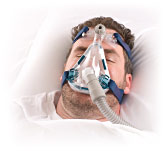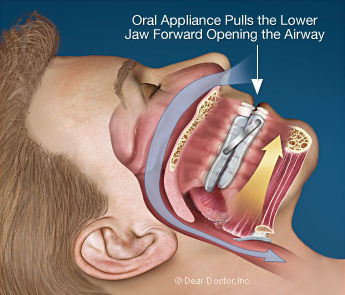Sleep Apnea Frequently Asked Questions

If my bed-partner is a chronic loud snorer, should I be concerned and what should I do?
Yes there is plenty of reason to be concerned. Chronic loud snoring is one of the most common findings with obstructive sleep apnea, and in fact the louder and more chronic the snoring is, the greater the likelihood of OSA. Seek a consultation with a sleep expert to assess the snoring problem so that an action plan can be developed.
Why does my (sleeping) partner have more trouble with snoring and lapses in breathing after drinking alcohol or sleeping on his/her back?
Drinking alcohol, or even taking muscle relaxants and many other medications for that matter — cause more muscle relaxation so the tongue and other tissues in the throat relax and more easily close off the upper airway. People who snore are often worse sleeping on their backs because it encourages the lower jaw to fall back and the tongue closes off the airway causing increased snoring and pauses in breathing. Sometimes sleeping in a semi-reclined position or sleeping on the side or stomach can enable better breathing and minimize snoring.

Why do I wake up exhausted even though I get up to 10 hours sleep at night?
If you have sleep apnea you may wake 50 or more times per hour during the night. This is equivalent to waking up almost every minute. The awakenings are called micro-arousals and can be from 1-3 seconds long, and you have no memory of them. The micro-arousals allow enough waking to restore muscle tone to your upper airway so you can breathe. Unfortunately all those awakenings prevent you from reaching the deeper and more restful sleep so it matters little how many hours you are in bed. The best solution is to get help from a sleep expert so that you can find ways to breathe through the night, and get some of that restful and restorative deep sleep.

I have tried a CPAP machine, but often take the mask off in my sleep. What are my other options?
It is very hard to control your actions when asleep and if the CPAP is too irritating you may involuntarily remove it in you sleep or even roll over and dislodge it from your face. You can try different masks for comfort, but another option to consider is an oral appliance made by a specially trained dentist. Studies show that patients given the option of CPAP or oral appliances tend to prefer the appliance to help control their obstructive sleep apnea. In certain circumstances a surgical option will be entertained but it's best to exhaust the conservative reversible approaches first.

Do mouthpieces made by a dentist really work for sleep apnea?
Yes they really do work but not in all cases. At this time we cannot tell which cases oral appliances or mouth pieces will work for, but success rates of 80% or more have been reported, depending on how severe the obstructive sleep apnea is. CPAP shows greater success in more varied types of sleep apnea but unfortunately its success is still in the 80-85% range and of course many patients give up using it within a few months. Some cannot even tolerate it for one night. Management of OSA is for the rest of your life, so if you have given up with one management approach you must try another or risk significant medical consequences like increased blood pressure, diabetes, brain damage and even premature death.
How do I find a dentist who knows about Sleep Disorders and can make an oral appliance to help treat one?
Not all dentists are trained in this field or even have interest in the field of Dental Sleep Medicine. Your own dentist may have some experience with oral appliances but it is best to ask how much experience and training he/she may have. One of the best independent resources to look up is the American Academy of Dental Sleep Medicine (AADSM) at www.aadsm.org and see if one of their more than 2,000 dentists is listed in your neighborhood. Another dental group to investigate is the American Academy of Orofacial Pain (www.aaop.org). Another approach is to ask your physician for a referral for a doctor, likewise trained in Sleep Medicine. Before committing to treatment, investigate whether your dentist or even a Sleep Medicine trained dentist has experience and the necessary qualifications. Don't be afraid to ask appropriate questions.



